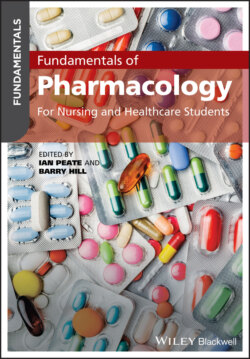Читать книгу Fundamentals of Pharmacology - Группа авторов - Страница 28
Patient beliefs and medicines
ОглавлениеPatients' beliefs and preferences about medication prescribing may affect medication adherence. Clyne et al. (2017) point out that patients' beliefs about treatment are a critical influence on prescription medication use. Patients may influence prescribing decisions on the basis of their expectations or, in some cases, their unwillingness to take medicines. Patients' strong beliefs in medicines, their expectations and resistance to change are cited as important barriers to prescribing.
Bearing in mind the important role that beliefs can play in medication use, it is important for the nurse to acknowledge this and to explore the beliefs of patients. Non‐adherence can result in morbidity and mortality, unnecessary health costs, unnecessary investigations and changes in treatment regimens. Neame and Hammond (2005) conclude that people with strong beliefs in the necessity of taking medication to maintain their health were found to be more adherent to treatment, and those with higher levels of concern about medication, commonly about the dangers of dependence and long‐term side effects, were more likely to be non‐adherent.
A Scandinavian study (Mårdby et al., 2009) considered beliefs, not of patients but of doctors and nurses in an outpatient setting; their aim was to explore general beliefs about medicines among doctors and nurses. They concluded that nurses saw medicines as more harmful and less beneficial than did doctors. The profession's different beliefs about medicines are important factors for adherence to medicines, just as patients' beliefs are.
There are many reasons for non‐adherence and one reason may lie between the expectations of health professionals and the behaviour of patients where there is a failure to recognise that the views and expectations of patients are key factors associated with medicine taking. Patients' beliefs and goals must be at the centre of decision‐making about their medicines, so the process of selecting and providing care has to be one of partnership and negotiation between the patient and health professionals.
Patients are invited to make informed decisions about all aspects of their care, and this comes with support from health professionals. In order to make an informed decision, then, these decisions have to be well informed. Health professionals are required to provide information that is appropriate and that fits with the patient's health beliefs, they are also required to offer that information in such a way that it is understandable to each individual. The RPS (2016) provides a framework for reaching a shared decision (see Box 1.1.)
It can be hard to decide how much information to give a patient; for example, which side effects to mention, where to obtain specialised information, as well as where the boundary of responsibility lies between the health professional and the patient. Chapter 3 of this book addresses some of the ethical and legal issues that are associated with medicines management and pharmacology.
